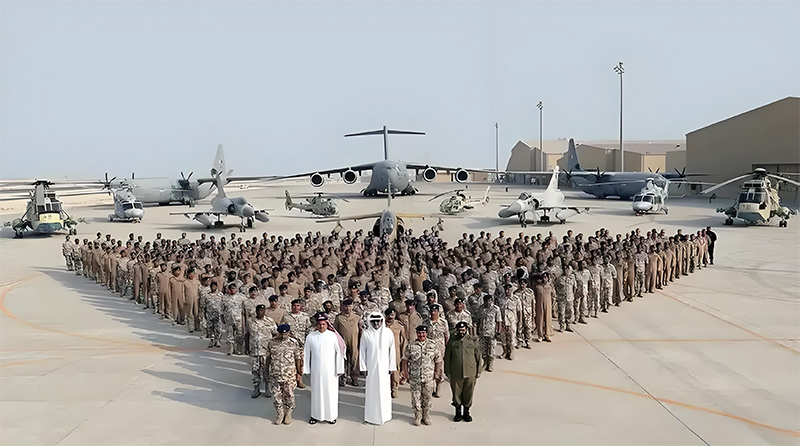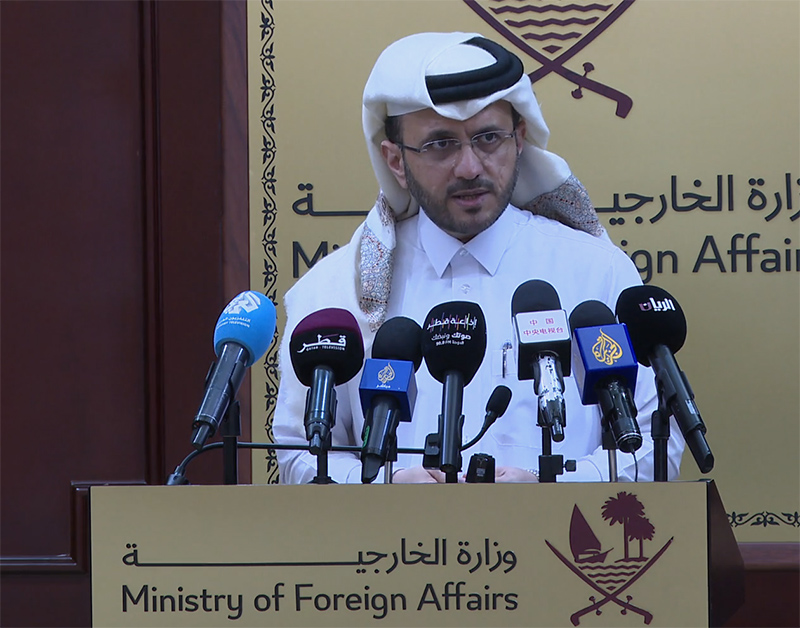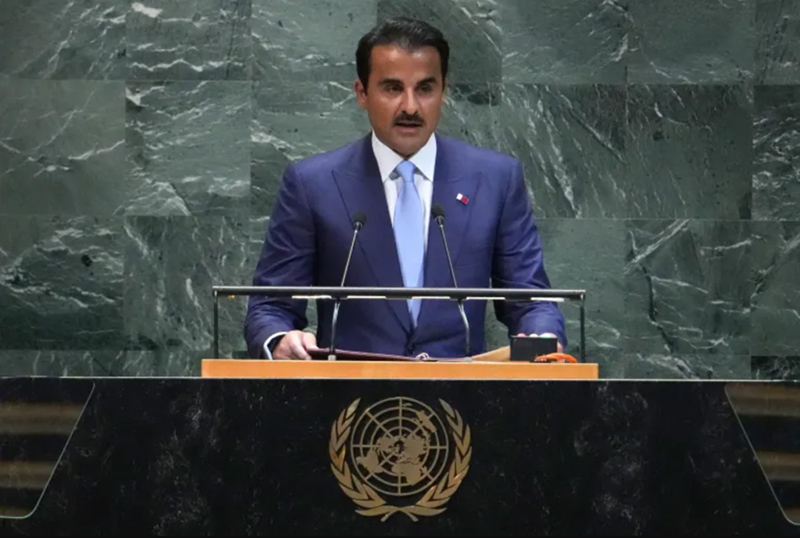On September 24, in a speech at the United Nations General Assembly in New York, Qatari Emir Tamim made a significant accusation, stating that Israel’s airstrikes on Doha constituted “state terrorism.” This statement quickly garnered international attention and marked the first time Qatar had publicly responded to Israeli military action in such explicit terms.
On the evening of September 9, the Israeli military launched an airstrike on a residential area in the Qatari capital, targeting Hamas negotiators and killing six people, including a Qatari citizen. The incident garnered widespread attention at the time. It is noteworthy that Qatar is not only a key partner of the United States in the Middle East but also one of the few mediators in the Gaza conflict committed to maintaining channels for dialogue.
Now, Qatar’s leaders’ statement at the United Nations, an international platform, formally demonstrates that its neutral position has been severely challenged, and the foundation of trust in mediation efforts has been undermined.
The current situation reveals that the core issue goes beyond a simple military conflict. The question arises: If even a platform for dialogue like Qatar becomes the target of military action, how can the Middle East peace process continue to advance?
Cracks in the U.S.-Israel Alliance
The airstrike on Qatar is not only a diplomatic incident; it also reflects the weakening of the US security system in the Middle East.
Qatar hosts the Al Udeid Air Base, the largest US military base in the Middle East, and is one of the countries granted “Major Non-NATO Ally” status by the US. It is generally believed that countries with close ties to the US, such as Qatar, deserve a certain degree of protection and should not be the target of military strikes without warning.

However, before the airstrike, Qatar claimed it had received no official notification from either Israel or the US. The US later stated only that it “informed Qatar within 10 minutes of the start of the airstrike” and reiterated that “Israel has the right to self-defense.” According to Reuters, Qatari diplomatic channels believe the US actions did not constitute effective coordination and were even seen as tacit approval.
The White House’s statement on the matter also displayed a dual stance: on the one hand, it expressed regret that the attack took place in a residential area, while on the other, it affirmed the strategic value of striking key Hamas members. This stance sends a clear message: when Israel prioritizes security, the sovereignty and role of even close allies may be relegated to secondary considerations.
For the Gulf countries, this incident serves as a warning: If even Qatar can hardly guarantee its own security, how can other countries guarantee their security?
Mediation Platform Under Fire
The real impact of this airstrike lies not only in the casualties but also in the damage it inflicts on the ongoing peace dialogue mechanism.
Qatar has long played a mediating role in conflict zones such as Gaza, Lebanon, Afghanistan, and Sudan. The 2020 US-Taliban withdrawal agreement was signed in Doha; during the 2023 Gaza conflict, Qatar facilitated a hostage exchange agreement, and it provides approximately $30 million per month to Gaza to maintain basic livelihoods.
However, on the evening of September 9th, a Hamas negotiating delegation was attacked by Israeli long-range strikes while negotiating a US-facilitated ceasefire draft in Qatar, killing six people, including several intermediaries involved in the coordination, who typically play a key role in post-war ceasefire arrangements.
A Hamas official close to the negotiating team, according to the latest reports, stated that if even Qatar cannot guarantee the safety of its interlocutors, peace talks will be difficult to continue. This demonstrates that the mediation mechanism has been severely weakened.

For Israel, such military action may bring short-term tactical gains, but in the long run, it may weaken its chances of resolving the issue through diplomatic means. A Qatari scholar pointed out that air strikes destroy not only lives but also the possibility of negotiation.
Gulf States Watch and Wait
The decline in US credibility, the escalation of Israeli military actions, and the weakening of mediation mechanisms have collectively led to a shift in the Middle East’s security landscape.
In its UN General Assembly address, Qatar, in addition to criticizing Israel, also called on regional countries to jointly maintain dialogue mechanisms. Notably, the statement made no mention of the US or the US military presence in Qatar, demonstrating a subtle shift in relations between the two sides.
Meanwhile, Gulf Cooperation Council member states such as Saudi Arabia, the United Arab Emirates, and Kuwait have remained evasive following the incident, demonstrating a cautious wait-and-see approach. Saudi Arabia has been expanding its independent diplomacy in recent years, fostering ties with Iran, China, and other parties. Since establishing diplomatic ties with Israel, the UAE has maintained a low profile on the Gaza issue. The Qatar incident has prompted these countries to consider whether they should reduce their reliance on the US and seek diversified avenues for security cooperation.
Violence Fills the Diplomatic Void
While Qatar’s statement at the UN General Assembly was a diplomatic act, the political signal it sent was clear enough: Qatar no longer unconditionally supports a mediation platform vulnerable to military attack.
This not only reflects a shift in a country’s stance but also heralds a new phase in the diplomatic and security landscape of the Middle East. Against this backdrop, the space for dialogue and mediation is shrinking, and violence may once again dominate the conflict resolution process.
When mediators themselves become targets of attack, any remaining hope for peace becomes even more elusive, and the regional situation faces even greater uncertainty.












